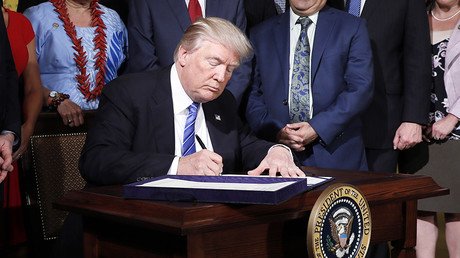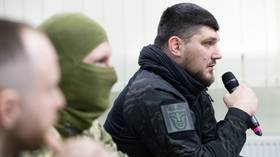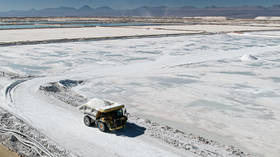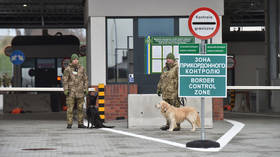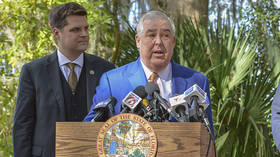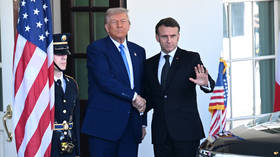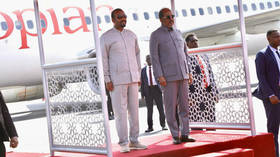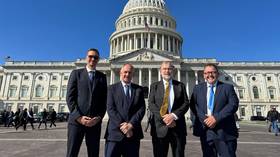‘Unfortunate escalation’: Reactions to US order to close Russian consulate
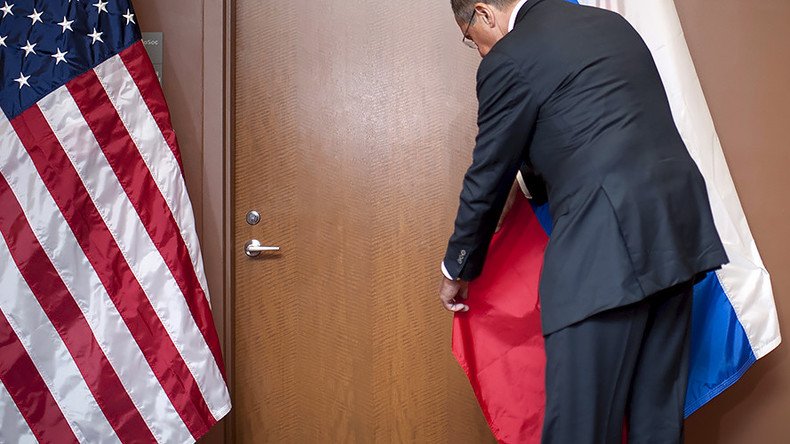
The US State Department’s announcement that Russia must close a consulate in San Francisco and reduce consular presence in Washington, DC and New York is a further escalation in already tense relations with Moscow, several US experts say.
On Thursday, the State Department sent a request to the Russian government to close the consulate in San Francisco, California, as well as a chancery annex in Washington, DC and a consular annex in New York City, spokesman Heather Nauert said in a statement.
“This is an unfortunate escalation of the tit-for-tat cycle of punishment being directed against Russia by the Trump Administration,” former CIA analyst Philip Giraldi told RT.
BREAKING: Lavrov to Tillerson on consulate closure: We regret escalation of tension not initiated by #Russiahttps://t.co/YBp7Egn2oWpic.twitter.com/tGsc2ESyuo
— RT America (@RT_America) August 31, 2017
“This creates an endless cycle of punishment and response from which there is no easy way out. It is hardly a sign that the Trump White House is actually seeking to improve relations with the Kremlin,” Giraldi said.
The State Department followed up with a statement that they would like to “avoid further retaliation.”
US hopes to avoid further retaliation & move forward with improved relations & cooperation with #Russiahttps://t.co/M3frokDACn
— Department of State (@StateDept) August 31, 2017
Former US ambassador to Moscow, Michael McFaul, was skeptical.
Let's see. https://t.co/zkIWW51zdF
— Michael McFaul (@McFaul) August 31, 2017
The decision to close the three Russian diplomatic facilities is an example of the severe inconsistency in the US foreign policy and is a result of an ongoing struggle within the American establishment, Former UK Ambassador to Syria and Bahrain Peter Ford believes.
“I think the American action is paranoid and bipolar at the same time. The Russians must find it very puzzling to read American behavior, there’s absolutely no consistency in it,” Ford told RT. “The president, as he made clear in his remarks, seems sincerely to want better relations with Russia, but there are forces working within the administration and in the security state of America which want the opposite. And so American policy towards Russia veers all over the place, like a supermarket trolley without one key wheel.”
While President Trump says he wants better relations with Russia, he recently qualified that with “some day” and “eventually,” former US diplomat Jim Jatras noted.
“For a lot of people in Washington, having bad relations with Russia is an end in itself, it’s not a means to an end. And they are calling the shots, not President Trump,” Jatras told RT. “If there is anybody in his administration who wants to improve ties with Russia, it is him - but as far as I can tell, he’s about the only one.”
“This is all part of an escalation of tensions between the US and Russia which, I am sad to say, the US initiated,” Dan Kovalik, who teaches international human rights at the University of Pittsburgh School of Law, told RT.
“Just when there appeared to be a welcome breakthrough between the US and Russia at the G-20 Summit, the US Congress reacted to the possibility of a détente by immediately and overwhelmingly acting to impose a new round of sanctions against Russia aimed at Russia’s natural gas trade in Europe,” Kovalik said.
The sanctions were adopted with veto-proof majorities, so President Donald Trump had to sign them into law at the beginning of August. He noted, however, that the law contained "clearly unconstitutional" provisions his administration might challenge in courts.
“It appears that there is strong, bipartisan opposition in the US to a peaceful relationship with Russia, and this opposition is putting the entire world at risk of more war and conflagration,” Kovalik said. “It is high time the US pull back from such provocations of Russia and find a way to work with Russia as a friend and partner, just as Russia has wanted for many years."
“This tit-for-tat will mean eventual catastrophe for everyone on earth, unless we finally get some sanity in US leadership, to pull back from the brink,” Mark Crispin Miller, professor of media studies at New York University, told RT. “Judging from the warlike posture of both parties and the US media, it's hard to see where such restraint will come from; and yet those of us who see the danger must do all we can to warn against it.”
US foreign policy sometimes looks as if five-year-olds were in charge of it, retired FBI agent Coleen Rowley told RT. “This childish tit-for-tat game will not end well unless there's a grown-up in the room who can put an end to it.”
